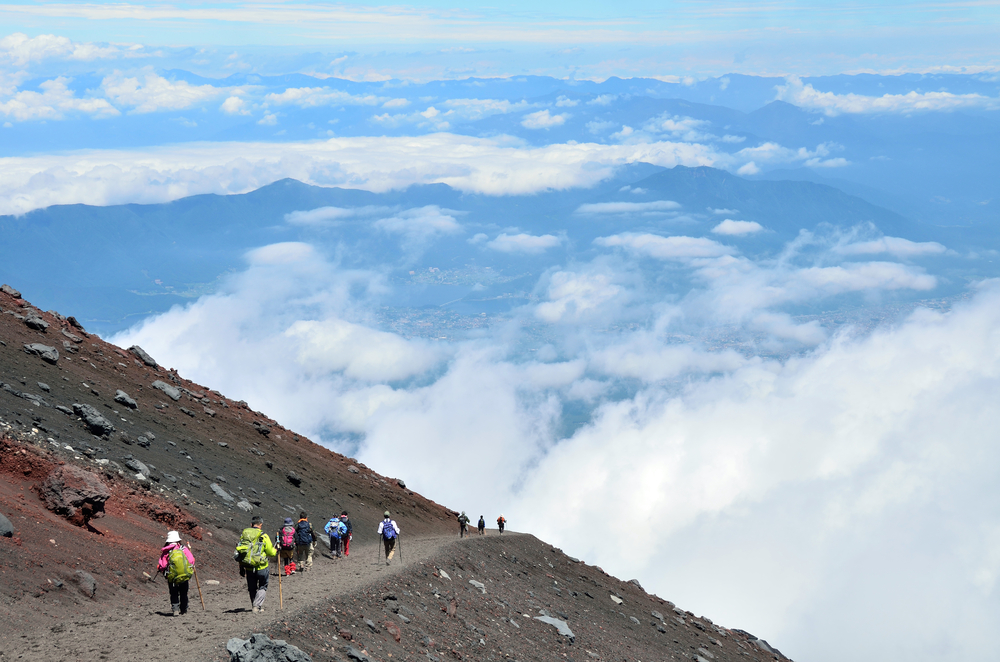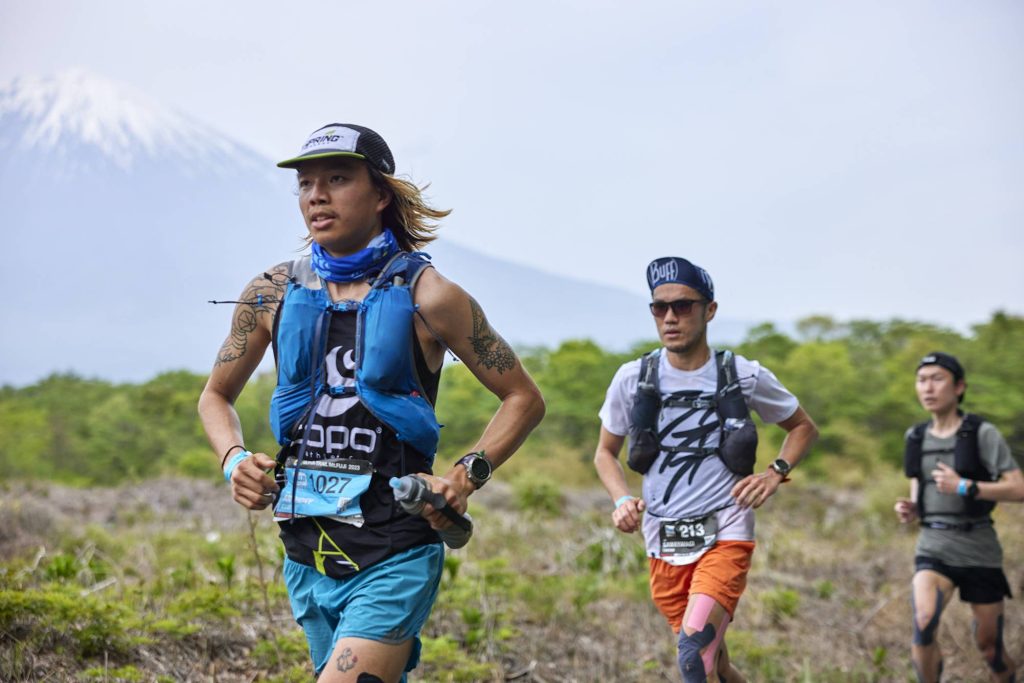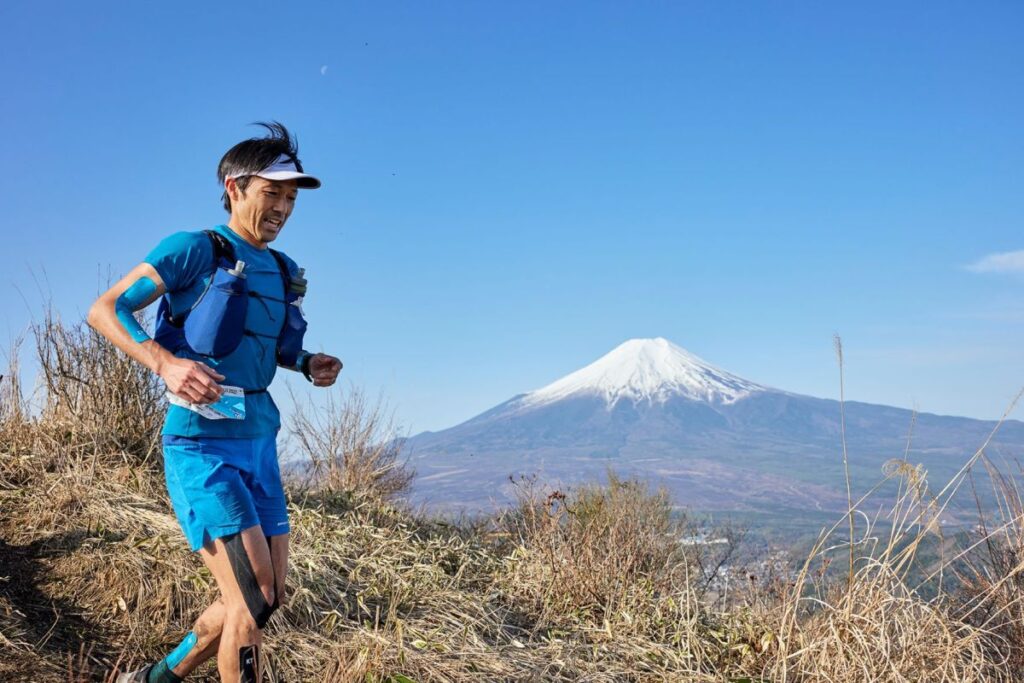This Friday, the highly anticipated Mount Fuji 100 race kicks off, marking the start of an epic journey for 3,400 participants around Japan’s majestic peak. Established in 2012, the Mount Fuji 100, formerly known as UTMF, is renowned as a groundbreaking ultra-trail event in Japan. Covering approximately 166 kilometers and boasting over 7,000 meters of elevation gain, the course winds its way through roads, trails, and forests beneath the iconic symbol of Japan. Alongside the main race, the Kai loop offers a challenging 70-km route with 3,500 meters of elevation gain.
Participating in either course demands courage and determination. “If it scares you, do it,” reflects Alice Handscomb, a first-time entrant from Iwate Prefecture.
Initially gaining global recognition as the sister race to France’s Ultra-Trail du Mont-Blanc (UTMB), the Mount Fuji 100 saw its international prominence decline after 2019 due to pandemic disruptions and severed ties with UTMB. Despite maintaining its status as Japan’s premier ultra-trail race, a sense of something missing lingered within the running community.
 Now, with the advent of the World Trail Majors, there is anticipation for the Mount Fuji 100 to reclaim its position as Asia’s leading trail race. Established in November 2023, the Gran Canaria World Trail Majors comprise 10 ultra-distance trail races spread throughout the year. This consortium offers an alternative to the UTMB World Series, allowing participants to join any event without accruing points from others. Among the esteemed races are the Hong Kong 100, Transgrancanaria, The Grand Raid des Pyrenees, and the Ultra-trail Cape Town. Mount Fuji 100 is seen as a natural fit for this prestigious series.
Now, with the advent of the World Trail Majors, there is anticipation for the Mount Fuji 100 to reclaim its position as Asia’s leading trail race. Established in November 2023, the Gran Canaria World Trail Majors comprise 10 ultra-distance trail races spread throughout the year. This consortium offers an alternative to the UTMB World Series, allowing participants to join any event without accruing points from others. Among the esteemed races are the Hong Kong 100, Transgrancanaria, The Grand Raid des Pyrenees, and the Ultra-trail Cape Town. Mount Fuji 100 is seen as a natural fit for this prestigious series.
The race’s allure as a must-do event remains undiminished. However, its demanding course presents a formidable challenge for both seasoned professionals and dedicated amateurs. Canadian Craig Sutton, a four-time finisher, acknowledges the inevitable trials: “In 100 miles, there will be problems.”
Preparation for such a grueling race entails years of dedicated training, both physically and mentally. Navigating the course’s varied terrain, from flat stretches to taxing ascents and descents, requires agility and endurance. Yet, amid the physical and mental exertion, runners find moments of inspiration amidst the stunning landscapes and historic townscapes along the route.

As the fourth race in the World Trail Majors, the Mount Fuji 100 offers elite athletes the opportunity to compete for prize money and the inaugural series championship. American trail running legend Courtney Dauwalter, a previous winner, aims to secure victory once again, while contenders like Yuya Kawasaki, Tomonori Onitsuka, and Andreu Simon Aymerich vie for top honors on the men’s side.
With its international stature, organizers are enhancing the race experience for participants and spectators worldwide. Plans for live broadcasts in Japanese and English, as well as future initiatives to engage Chinese-speaking audiences, highlight the event’s global appeal.
For Tatsuo Chiba, co-chair of the organizing committee, the Mount Fuji 100 transcends mere competition; it’s a convergence of trail runners from diverse backgrounds against the backdrop of Mount Fuji, symbolizing unity in the shared language of trail running.




